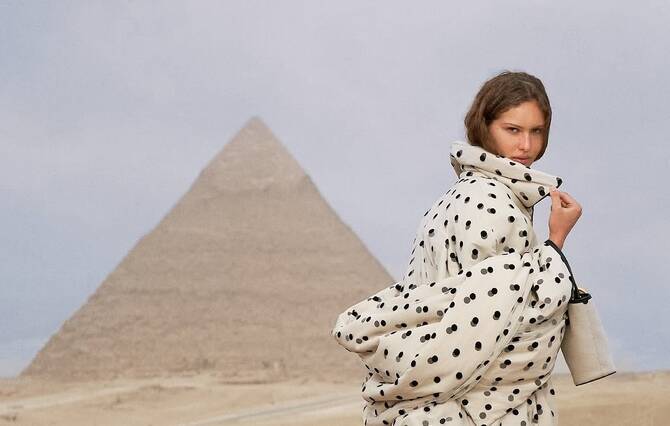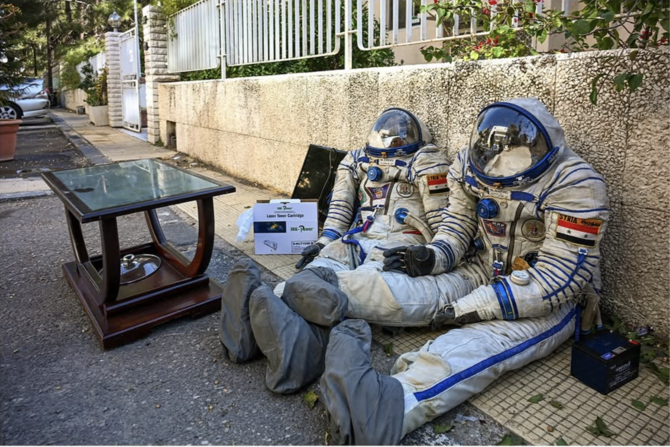In recent years, Muslim comedy has gained significant traction on platforms like Netflix, allowing both artists and audiences to explore themes relevant to the Muslim experience. This rise in visibility highlights the delicate balance between entertainment and representation, creating a space where conversations about identity, culture, and faith can thrive. However, with this visibility comes the trap of stereotypes that can overshadow the unique narratives presented by Muslim comedians. The challenge lies in navigating these stereotypes while maintaining authenticity in their comedic expressions.
As viewers consume Muslim comedy content, they may find themselves grappling with the tension between how much is expected from these performances and what these comedians genuinely wish to convey. Many Muslim comedians feel the liberation that comes from creating content that resonates with their own experiences, but they also feel pressure to conform to certain expectations dictated by mainstream audiences. This paradox underscores a broader narrative within the cultural discourse surrounding Muslim comedy: can humor serve as a means to bridge cultural divides, or does it merely reinforce existing biases?
In navigating the complex landscape of Muslim humor, comedians have the opportunity to reclaim their narratives and offer fresh perspectives that challenge misconceptions.
The Trap and Liberation of “Muslim Comedy” in Cultural Discourse
In recent years, Muslim comedy has emerged as a significant force in the cultural landscape, offering a unique perspective that challenges stereotypes and fosters understanding. This comedic genre often grapples with the duality of cultural discourse, where it serves both as a reflection of community struggles and as a bridge to wider societal themes. Comedians are often caught in the trap of navigating between cultural authenticity and the pressure to conform to mainstream expectations.
Through a blend of humor, satire, and storytelling, Muslim comedians provide an opportunity for liberation—not only for themselves but also for their audiences. By addressing topics such as identity, faith, and societal norms, these artists push back against negative stereotypes while simultaneously fostering dialogue. The rich tapestry of experiences reflected in their routines allows them to reclaim their narratives, which are often distorted in media representations.
However, the challenge persists as comedians find themselves in the trap of expectation, with audiences sometimes looking for jokes that fit a specific narrative. This can lead to a disconnection between the comedic performances and the true essence of Muslim identity. The struggle to balance these pressures is ongoing, but it is through this tension that a more profound liberation emerges.
Muslim comedy has the potential to reshape cultural discourse by highlighting shared human experiences while providing a platform for underrepresented voices. It is this very process of navigating the trap that propels the movement forward, enriching the cultural landscape and fostering greater understanding across various communities.
Exploring Key Themes in Muslim Comedy Productions
Muslim comedy has emerged as a vibrant genre, providing a unique lens through which to explore diverse cultural narratives. One significant aspect of this genre is how it navigates the challenges of identity and belonging. Comedians often articulate the struggles of being a Muslim in contemporary society, addressing both stereotypes and misconceptions that permeate mainstream media. By infusing humor into these serious issues, Muslim comedians challenge audiences to reconsider their preconceived notions and biases.
Another prominent theme within Muslim comedy is the juxtaposition of tradition and modernity. Many productions showcase how Muslims adapt to a rapidly changing world while retaining their cultural roots. This theme resonates with audiences not only from the Muslim community but also with anyone experiencing cultural shifts in their lives. Through storytelling, comedians reveal the relatable, often humorous moments that occur when diverse worlds collide.
Furthermore, the aspect of liberation in Muslim comedy cannot be overlooked. Comedians use their platform to liberate themselves and their audiences from the constraints of societal expectations. By embracing their identities and presenting authentic narratives, they empower other Muslim artists and comedians to share their stories without fear of judgment. This newly found freedom fosters a sense of community and solidarity, encouraging dialogues that transcend cultural boundaries.
As the realm of Muslim comedy continues to evolve, it’s crucial for each comedian to embrace their uniqueness. In doing so, they affirm the notion that authentic representation fosters understanding and compassion, turning laughter into a force for connection.
Navigating Stereotypes: Challenges Faced by Muslim Comedians
In recent years, Muslim comedy has begun to flourish, but it still grapples with a myriad of challenges, mostly revolving around stereotypes. Comedians in this genre often face the daunting task of navigating cultural caricatures while trying to present an authentic narrative. The perception of Muslim comedians can be clouded by preconceived notions, often making it difficult for them to break through the clutter of cultural stereotypes that the general audience may have absorbed from media portrayals.
For many Muslim comedians, the challenge lies in balancing their personal experiences with what is expected by the audience. Jokes that aim to shed light on the lived experiences of Muslims may sometimes be misconstrued, leading to backlash or misunderstanding. This intricate dance often feels like a tightrope walk, where one misstep can reinforce stereotypes rather than dismantle them. However, this also serves as an opportunity for liberation, allowing comedians to reshape the narrative surrounding Islam and its followers.
As Muslim comedy continues to grow, it is imperative for comedians to challenge the dominant narratives while embracing their unique voices. The potential for comedic expression to critique societal norms and shift perceptions is profound. Comedians are not just entertainers; they are storytellers who can offer fresh perspectives that resonate with wider audiences, thus fostering a deeper understanding of cultural diversity.
The trap of Muslim comedy often lies in expectations from the audience. Many may anticipate only jokes about hair coverings or the absurdities faced in a post-9/11 world, which can box comedians into a corner. In juxtaposition, the liberation comes from knowing their art can involve a multitude of experiences, one that is rich, layered, and nuanced, allowing them to transcend far beyond stereotypes into a realm of genuine laughter and connection.
The journey of Muslim comedians is one of resilience. As they create space for their stories to be told authentically, they not only challenge misconceptions but also invite audiences to engage in a dialogue, thus utilizing humor as a bridge across cultural divides.
How Muslim Comedy Can Bridge Cultural Divides
Comedy is often seen as a lens through which we can view the world more clearly. When it comes to Muslim comedy, there is a unique opportunity to bridge cultural divides. By using humor, Muslim comedians can challenge stereotypes and unfounded perceptions surrounding their faith and culture. Through relatable storytelling, they foster understanding and empathy, allowing audiences from different backgrounds to find common ground.
The trap of Muslim comedy lies in the temptation to conform to stereotypical narratives, often prioritizing humor that fits the mainstream expectations. However, many comedians have begun to reject these limitations. They not only embrace their Muslim identity but also express a wide range of experiences that go beyond ancient cliches. This liberation from the confines of stereotypical roles allows them to present a more nuanced image of their cultural backdrop, making their performances resonate more deeply with diverse audiences.
Additionally, the global reach of platforms like Netflix has provided a platform for Muslim comedians to shine on an international stage, further breaking down barriers. Shows featuring Muslim comedy showcase the richness of the culture while maintaining a light-hearted approach, demonstrating that laughter truly can unite people. By sharing personal stories, these comedians entertain while simultaneously educating, allowing viewers of all backgrounds to connect with their experiences.





